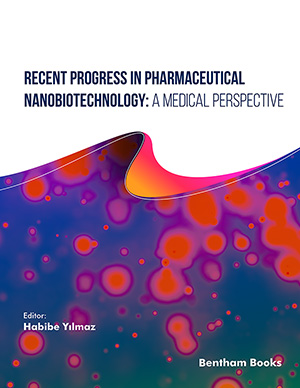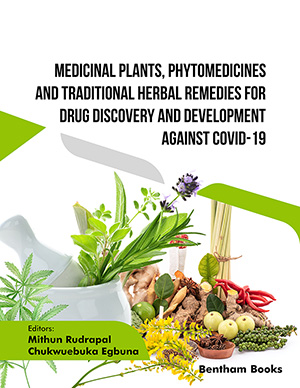Abstract
Background: Dihydroartemisinin (DHA), a natural agent, exhibits potent anticancer activity. However, its biological activity on prostate cancer (PCa) 22Rv1 cells has not been previously investigated.
Objective: In this study, we demonstrate that DHA induces anticancer effects through the induction of apoptosis and autophagy.
Methods: Cell viability and proliferation rate were assessed using the CCK-8 assay and cell clone formation assay. The generation of reactive oxygen species (ROS) was detected by flow cytometry. The molecular mechanism of DHA-induced apoptosis and autophagy was examined using Western blot and RT-qPCR. The formation of autophagosomes and the changes in autophagy flux were observed using transmission electron microscopy (TEM) and confocal microscopy. The effect of DHA combined with Chloroquine (CQ) was assessed using the EdU assay and flow cytometry. The expressions of ROS/AMPK/mTOR-related proteins were detected using Western blot. The interaction between Beclin-1 and Bcl-2 was examined using Co-IP.
Results: DHA inhibited 22Rv1 cell proliferation and induced apoptosis. DHA exerted its antiprostate cancer effects by increasing ROS levels. DHA promoted autophagy progression in 22Rv1 cells. Inhibition of autophagy enhanced the pro-apoptotic effect of DHA. DHA-induced autophagy initiation depended on the ROS/AMPK/mTOR pathway. After DHA treatment, the impact of Beclin- 1 on Bcl-2 was weakened, and its binding with Vps34 was enhanced.
Conclusion: DHA induces apoptosis and autophagy in 22Rv1 cells. The underlying mechanism may involve the regulation of ROS/AMPK/mTOR signaling pathways and the interaction between Beclin-1 and Bcl-2 proteins. Additionally, the combination of DHA and CQ may enhance the efficacy of DHA in inhibiting tumor cell activity.
Keywords: Dihydroartemisinin, prostate cancer, autophagy, apoptosis, mechanism, 22rv1.





























